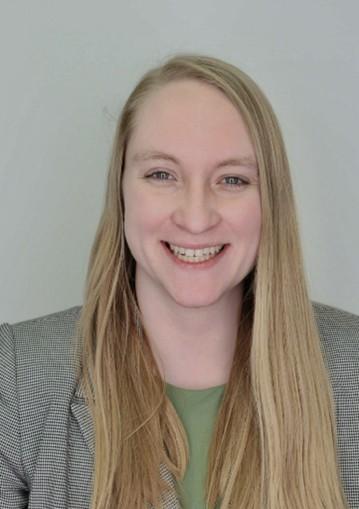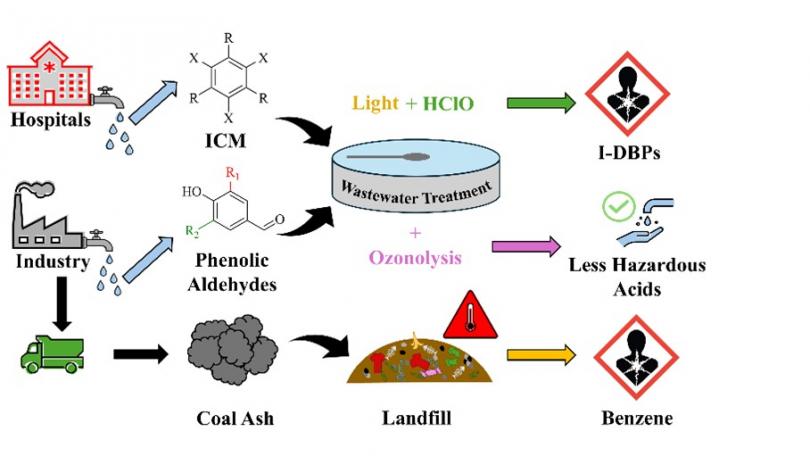 The health of our communities depends on the effective treatment of both solid and liquid waste to eradicate hazardous pollutants before they can interact with living organisms or contaminate the environment. Daily, society generates solid waste (commonly destined for landfills) and liquid waste, (commonly discharged into wastewater systems) and without proper treatment, these wastes can release hazardous primary secondary pollutants. Industries producing wastewater with high pollutant concentrations, especially those utilizing lignin-based biomass, face complex challenges because each facility may require a tailored treatment approach. In response, this work investigates the use of ozonolysis to transform lignin monomers into smaller, less hazardous components that can be more efficiently managed by public wastewater systems. Furthermore, while conventional wastewater treatment systems are effective for common water quality issues, they can inadvertently allow complex compounds, such pollutants from hospital effluent, to pass through. Under simulated treatment conditions incorporating sunlight and chlorination, a pollutant released from medical facilities is degraded, but this process may also lead to the formation of carcinogenic disinfection by-products (DBPs) that pose direct toxicological risks to nearby communities. The implications extend to solid waste management as well. Chemical phenomena, such as those occurring in poorly understood elevated temperature landfills (ETLFs), can compromise treatment methods and increase community exposure to harmful pollutants. By monitoring hazardous components, such as volatile organic compounds (VOCs), over time, this work aims to elucidate the chemical reactions occurring both during treatment and in the environment thereafter. Ultimately, this research underscores the need for fundamental, innovative approaches to pollution transformation. Bridging the gap between existing practices for solid and liquid waste treatment will be critical to safeguarding environmental and public health.
The health of our communities depends on the effective treatment of both solid and liquid waste to eradicate hazardous pollutants before they can interact with living organisms or contaminate the environment. Daily, society generates solid waste (commonly destined for landfills) and liquid waste, (commonly discharged into wastewater systems) and without proper treatment, these wastes can release hazardous primary secondary pollutants. Industries producing wastewater with high pollutant concentrations, especially those utilizing lignin-based biomass, face complex challenges because each facility may require a tailored treatment approach. In response, this work investigates the use of ozonolysis to transform lignin monomers into smaller, less hazardous components that can be more efficiently managed by public wastewater systems. Furthermore, while conventional wastewater treatment systems are effective for common water quality issues, they can inadvertently allow complex compounds, such pollutants from hospital effluent, to pass through. Under simulated treatment conditions incorporating sunlight and chlorination, a pollutant released from medical facilities is degraded, but this process may also lead to the formation of carcinogenic disinfection by-products (DBPs) that pose direct toxicological risks to nearby communities. The implications extend to solid waste management as well. Chemical phenomena, such as those occurring in poorly understood elevated temperature landfills (ETLFs), can compromise treatment methods and increase community exposure to harmful pollutants. By monitoring hazardous components, such as volatile organic compounds (VOCs), over time, this work aims to elucidate the chemical reactions occurring both during treatment and in the environment thereafter. Ultimately, this research underscores the need for fundamental, innovative approaches to pollution transformation. Bridging the gap between existing practices for solid and liquid waste treatment will be critical to safeguarding environmental and public health.

